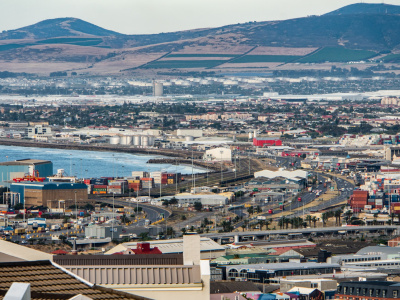
Leveraging private investment for sustainable development – Volume 7, Issue 2 (Spring 2018)
In this Issue of Great Insights magazine, we explore how a responsible and inclusive private sector can help achieve the Sustainable Development Goals.
Read the articles online
Leveraging private investment for sustainable development – Editorial
Jeske van Seters, Head of Programme Private Sector Engagement, ECDPM and Sebastian Grosse-Puppendahl, Policy Officer Trade, Investment and Finance, ECDPM
When discussing development cooperation policy and action in 2018, it is all about leveraging: leveraging the private sector, leveraging private finance, leveraging investments by companies and corporations. More broadly it is about leveraging resources, skills and knowledge the private sector can bring to the table to support and implement the Sustainable Development Goals (SDGs).
Features
The EU’s External Investment Plan: Creating sustainable jobs for poverty eradication in countries near the EU and in Africa
Neven Mimica, European Commissioner for International Cooperation and Development
In 2015, the international community agreed on the so-called Sustainable Development Goals (SDGs) that set out a vision to overcome poverty and achieve sustainable development worldwide by 2030. To deliver on this ambitious agenda, different financing sources will have to be used.
European development finance and the EBRD model
Sir Suma Chakrabarti, President of the European Bank for Reconstruction and Development
The initials EBRD stand for European Bank for Reconstruction and Development. But the paradox is that, despite being founded in 1991 and having the ‘D word’ in our title, for many years we stood at one remove from the mainstream development discourse. The principal reason for this was that the EBRD was set up specifically to promote “market-oriented economies…and private and entrepreneurial initiative”, or what I would call economic development across all its characteristics.
Policies to mobilise the private sector: Open your mind
Alexander De Croo, Belgium Minister of Development Cooperation
Belgium has embraced a private sector policy for development that aims to capture the multiple perspectives and opportunities embodied by the Sustainable Development Goals.
FAO’s promotion of sustainability criteria for leveraging finance in agriculture
Interview with José Graziano da Silva, Director-General of the Food and Agriculture Organization of the United Nationsl (FAO)
Achieving sustainable development – and the Sustainable Development Goals (SDGs) – calls for significant investment over the coming years. In the case of food and agriculture, this will need to come from governments, development partners and, on a far greater scale than in the past, from the private sector. Developing new financial models for sustainable development and ensuring harmony with the demanding policy vision and high ambitions of the 2030 Agenda is more than feasible; they are necessary and indispensable elements of our way forward.
Leveraging private finance
MDB private finance operations: Lenders or mobilisers?
Nancy Lee, Visiting Fellow at the Center for Global Development
Much is expected of the multilateral development banks (MDBs) as the international community confronts the daunting challenge of financing the Sustainable Development Goals (SDGs). The MDBs, especially their private sector windows (PSWs), are rightly regarded as essential actors in the challenge of moving from billions to the trillions of dollars of private finance necessary to fill yawning SDG finance gaps.
DFIs’ commitment to mobilising private finance for the sustainable development goals
Søren Peter Andreasen, General Manager of the Association of European Development Finance Institutions (EDFI)
Development finance institutions (DFIs) have been investing in the private sector in emerging and frontier markets for more than five decades. Now they have embarked on a decade-long campaign to scale up financing in sectors linked to the Sustainable Development Goals (SDGs) “from billions to trillions”. The author’s wish list features 5 top points that can secure the right combination of policies, strategies, and work on the ground.
Engaging the private sector in blended finance
Justice Johnston, Associate at Convergence
To leverage the private sector as a source of financing for the SDGs, blended finance should be used to produce attractive investment opportunities. This requires a better understanding of potential capital providers and their mandates, constraints, motivations, and investment preferences.
It takes a village: Why the compact with Africa might just work
Rob Floyd, Director and Senior Advisor at the African Center for Economic Transformation (ACET)
Under the G20 Compact with Africa (CwA), investment environments are set to change, but it will take the collective commitment of all the Compact stakeholders. Economic transformation in Africa also depends on the private sector, so the CwA is an important part of the equation. Will it be enough?
Leveraging private sector finance: Lessons from philanthropy
Annabelle Burgett Programme Officer and Rodrigo Salvado, Deputy Director, Bill & Melinda Gates Foundation
For blended finance to crowd-in private sector investment to social sectors and low-income countries, stimulate innovation and reach scale, greater risk tolerance among large providers of development finance is required. A more efficient allocation of public, private and philanthropic resources across development interventions depends on improved cost-benefit analysis based on additionality and risk-adjusted economic return.
Reshaping the EU ‘private finance for development’ landscape
San Bilal, Head of Trade, Investment and Finance Programme and Sebastian Grosse-Puppendahl, Policy Officer, ECDPM
With the ambition to move from billions to trillions in line with the 2030 and Addis Agendas, there is a need to shift towards using public interventions and finance in a smarter way, including leveraging private investments for inclusive and sustainable development. This does not only mean to integrate a private sector dimension in development cooperation.
Breaking new ground: Deploying risk capital in frontier markets
Cécile Ambert, Private Sector Facility Administrator at the African Development Bank
In risky markets, donor funds are routinely deployed to make projects “bankable”- in other words to make them capable of attracting commercial financing. This type of financial engineering is known as “blended finance”.
Impactful responsible business
The reality of achieving sustainable supply chains: A private sector perspective
Norma Wouters-Snell, owner Noble Achievers
Business seems sufficiently equipped to create and maintain sustainable supply chains. So why is the switch to sustainable proving so difficult?
EU leadership to promote responsible business conduct in global value chains
Jeske van Seters, Head of Programme Private Sector Engagement and Karim Karaki, Policy Officer, ECDPM
This article zooms in on the role of the EU to promote responsible business conduct in global value chains and particularly focuses on the challenges and opportunities for a coherent and coordinated approach.
Multinationals: Local adaptation key to sustainable development
Constantine Bartel, Development and Trade expert, University of Zurich
This article highlights research findings on the connections between the embeddedness of multinational corporations and their sustainability impacts in host countries. Embeddedness appears to be a critical factor in enabling the local private sector and communities to benefit from the operations of multinational enterprises in developing countries and emerging markets.
Growing a food company in West Africa: When business means sustainable development
Interview with Sylvie Sagbo, Managing Director of SENAR Les Délices Lysa and Cécile Carlier, Director of I&P Conseil
ECDPM’s Fabien Tondel speaks to Sylvie Sagbo, Managing Director of SENAR Les Délices Lysa, a Senegalese manufacturer of food products, and Cécile Carlier, Director of I&P Conseil, the advisory branch of Paris-based Investisseurs & Partenaires, which supports and invests in emerging small and medium-sized enterprises in Africa.
Faire grandir une entreprise agro-alimentaire en Afrique de l’Ouest : Quand affaires riment avec développement durable
Entretien avec Sylvie Sagbo, Directrice Générale du SENAR Les Délices Lysa et Cécile Carlier, Directrice du Conseil I & P
Fabien Tondel de l’ECDPM s’entretient avec Sylvie Sagbo, Présidente de SENAR Les Délices Lysa, un fabricant sénégalais de produits alimentaires, et Cécile Carlier, Directrice de I&P Conseil, la branche conseil de la société française Investisseurs & Partenaires, qui soutient et investit dans les petites et moyennes entreprises émergentes en Afrique.
The price of oil? Extractive development and conflict risk in Kenya
George Grayson, Programme Development and Assessment Manager at International Alert
While Kenya moves forward once again with developing its oil resources, the recent ‘hostage situation’ at a Tullow Oil-owned camp in Turkana, Northern Kenya in January shows that concerns over who is benefiting from extractives development continues to create conflict risks.
Doing business right in Ethiopia
Margaux Yost and Dominic Kotas, Business for Social Responsibility (BSR)
Interest is growing in Ethiopia as a sourcing destination for the apparel industry. As the country’s landscape evolves and industrial parks rise, global brands and suppliers have a unique opportunity to invest in women’s empowerment to ensure that the “Made in Ethiopia” label becomes synonymous with decent work.
Chevron’s corporate social enterprise” in Nigeria
Zachary Kaplan, Director of the Sustainable Business Group at DAI
In Nigeria, with the support of DAI, Chevron is pursuing a business-led approach to development since 2010. The company established a local development organisation that works to find market-based solutions to local economic problems.





